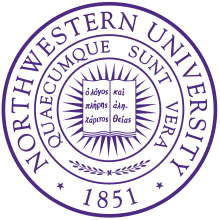Student Power Marches and Student-Faculty Anti-War Protests
In the spring of 1967, Ellis Pines, a sophomore theater major, ran for president of the student government (student senate) on a "student power" platform. During the final days of the campaign, he held "bitch-ins" at the Rock, a centrally located student landmark, which led to two marches to the 619 Clark Street administration office. In response to the second march, two university leaders, Dean Payson Wild and Vice-president Franklin Kreml, came onto the steps of the building as Mr. Pines fielded questions from several hundred random (non-radical, non-organized) students while local TV stations recorded the event. The presence of the university officials gave some credibility to the campaign, and Mr. Pines narrowly won the election by 83 votes.
Archival documents referenced seem to associate this protest with a Vietnam War teach-in that happened in the same month, indicating that "in April 1967, the first anti-war rally took place on the Northwestern campus in the form of a Vietnam teach-in." Careful reading, however, shows that the events were concurrent but not connected.
According to Ellis Pines himself, this demonstration, the first of its kind at the university, took place during his candidacy and was not directed against the Vietnam War. Rather it focused on "student life" issues, i.e. parietal hours, open occupancy in Evanston housing for African-American students, greater autonomy in pursuing a creative education, etc. A faculty member, the late political science instructor Edward W. "Ted" Gude, took Mr. Pines aside during the campaign and told him that he would have faculty support so long as he addressed campus but not international issues. Mr. Pines complied, and he said nothing about Vietnam during his campaign and brief tenure in office. The international pledge, however, was broken when the distinguished and popular Slavic Languages and Literature Professor Irwin Weil approached Mr. Pines about sending a supportive message to President Lyndon Johnson on behalf of Israel from the Student Senate on the eve of the Six Day War (June 1967). Professor Weil was concerned that academia's opposition to the Vietnam War would be misconstrued as general anti-war opposition to President Johnson should he need to use force in the Middle East situation. Although Mr. Pines agreed to Professor Weil's request in bringing the matter to the attention of the Student Senate, he also invited officers from Chicago's Arab nation consulates to participate in what became a rousing but polite debate with the Israel advocates.
At a later time, Professor Gude did participate in a Vietnam teach-in.
On April 27, 1967, a demonstration by the name "Gentle Thursday" took place outside Harris Hall in view of the weekly NROTC drill on Deering Meadow. It was described that "the gathering resembled a student carnival more than a protest by militants." [1]
Dow Chemical Company Demonstration
In early February 1968, students heard news of the Dow Chemical Company, the producer of the chemical weapon on napalm, recruiting on campus and began protesting. Starting at 60 and growing to 500 strong, the peaceful student demonstration on February 14, 1968 "articulated anti-war sentiment". [2] A statement about the university's recruiting processes was released by the Director of Placement the day before the demonstration on February 13, 1968. It stated that "it is the policy of Northwestern University to help its students find employment. To that end, placement services are provided... Student groups have asked... 'Should the Dow Chemical Company be permitted to recruit at Northwestern?' My answer, in accordance with the policy I have stated, is yes. [3] " While the university ultimately did not change its decision to allow Dow on campus, Dean Roland J Hinz showed his support and concern for the cause saying that "It was a cracking good demonstration... [and] it may have an effect on university policy". [4]
Black Student Sit-Ins (Apr. - Oct. 1968)
In May 1968, Northwestern's black students organized a sit-in in of the university Bursar's office to advocate for better race relations on campus. They hoped to persuade the administration to concede to their demands for increased admissions and financial aid,
for black students, "In organizing the Black Student Sit-In of May, 1968, students occupying the university Bursar's office wanted the university to improve race relations on campus by persuading the administration to concede to their formal demands. Included in these demands were increased admissions and financial aid for black students, creation of an all-black dorm and student center, addition of a Black Studies curriculum, and desegregation of the university's real estate holdings in Evanston. These records combine official statements from the university administration, the student protestors, the negotiations between the two, policy statements and press coverage of the sit-in." [2]
"lack of communication between students and administration lead to a sit in on may 3 and 4 by the university's black students. the students sat outside the bursar's office with a list of 15 demands and grievances about how they felt they fit into the NU community. They sat there until their concerns were heard" [5]


